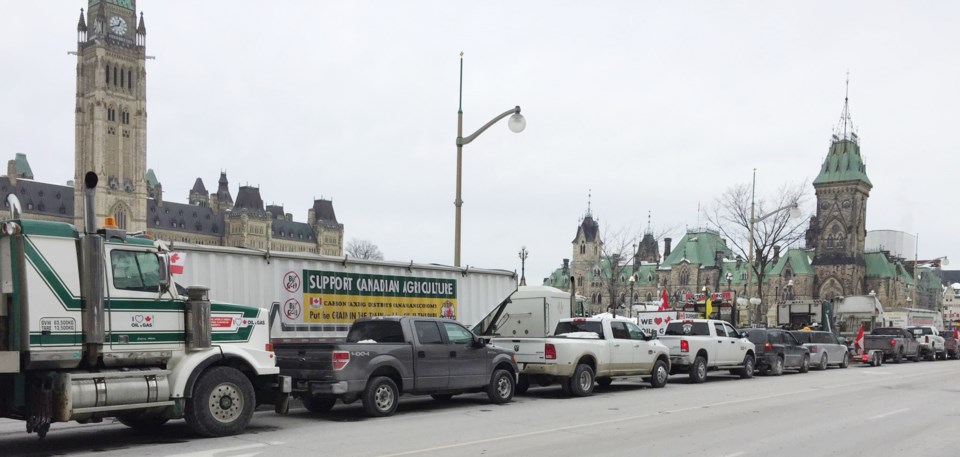Weyburn – The Regina Rally Against the Carbon Tax, and its associated convoy, might seem at first to be primarily an oilpatch concern. If you thought that, you would be wrong. Agriculture has a big concern when it comes to the carbon tax.
Terry Benning of Weyburn took part in the recent convoy to Ottawa, where his semi was parked on Parliament Hill. Now, he’s one of the organizers for the April 4 Regina Rally Against the Carbon Tax.
Benning said on March 21, “I’m an agricultural producer and I run a large family grain farm. I’m doing this because the carbon tax is just going to handcuff producers. As it goes up over time, it will add more and more and more to our expense. You’ve got to stand up and do something about it.
“I’ve got friends in the oilfield who are unemployed, whose families are interrupted, because of C-69 and C-48 bills. It’s total destruction.”
Asked if farming is exempt from the carbon tax, Benning replied, “The fuel only. When we send a load of lentils to a processor, they’re going to give you less, because they have to ship it somewhere. The railway has to pay the carbon tax, so there will be more freight on the grain when you deliver it to the elevator. We don’t deliver all the products ourselves. So we’ll hire Grain Belt Transport, which is a friend of mine. And he has to charge us more, because he’s paying the carbon tax on the fuel.
“Everything that you do is going to be charged the carbon tax. The fuel is the small portion, on the farm, compared to everything else,” Benning said.
Asked if there will be an impact on farm inputs, such as fertilizer, he said, “Sure it will, because they’re going to charge a carbon tax on the natural gas to build anhydrous ammonia which we used to build urea and liquid fertilizer. The freight to bring that fertilizer is going to be more. The freight to bring farm chemicals to your distributor is going to be more. Everything is going to go up all along the way.”
On April 4, he said, “I’m going to be participating in the Rally in Regina. We’re probably going to send two or three trucks.”



